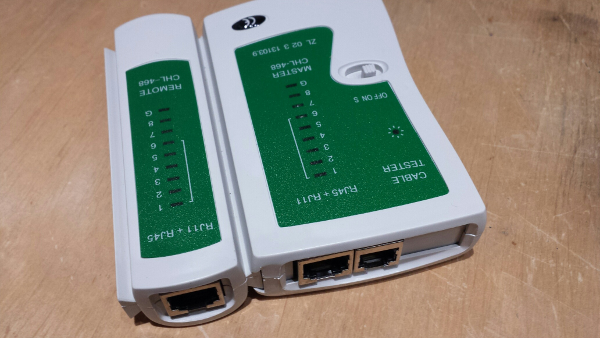Tools of the trade
Below is a list of tools I use most frequently for DIY projects, with some feedback on their usefulness from my standpoint. First some basics that should probably be part of a starter’s set, and then some nice to have stuff to make your DIY life easier.
Basics
Breadboard
Prototype circuits tend to grow uncontrollably when experimenting, so I tend to use large breadboards from the beginning.
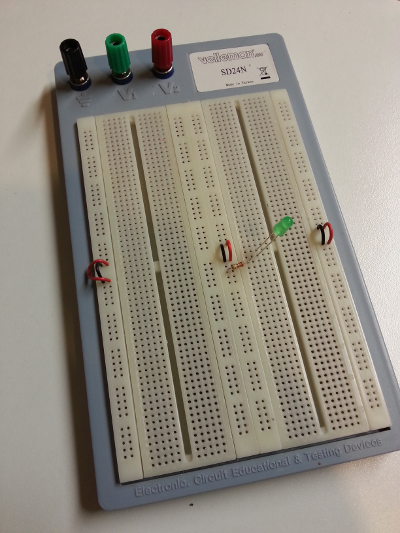
Multimeter
As far as I am concerned, a basic model is more than enough for 99% of projects, as long as it can measure
voltage, resistance, capacity, current, and provide a continuity test mode.
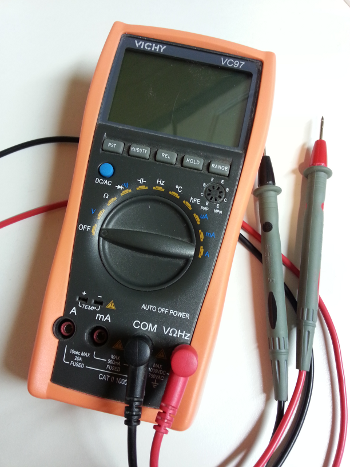
Lab power supply
Once you get tired of relying on batteries or a hacked PC power supply to get 9V/5V for testing your electronics projects, an adjustable lab power supply will look like a worthwhile investment.
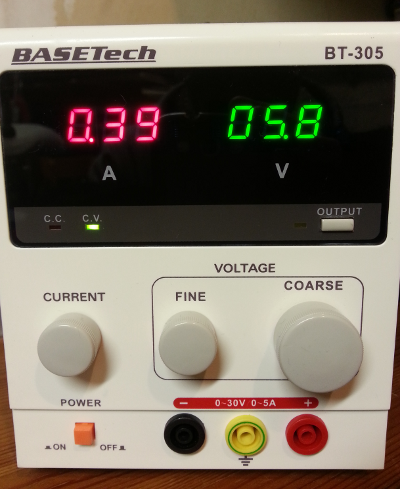
Soldering iron
This is one of the tools where buying a cheap model is a very bad idea. It will make things much more complicated than they should be, and rage quit your soldering.
DO invest in a decent soldering iron from the start. Mine is not good enough, I should have one with temperature control.
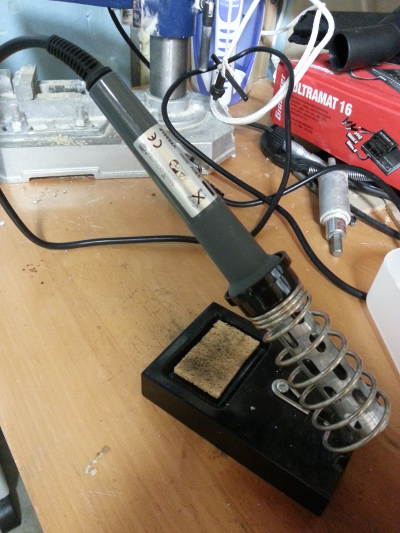
Tweezers & Cutters
Be sure to have various sizes and shapes. Again, damaging a project due to using an inappropriate cutter/clip/tweezer is a good way to kill motivation.
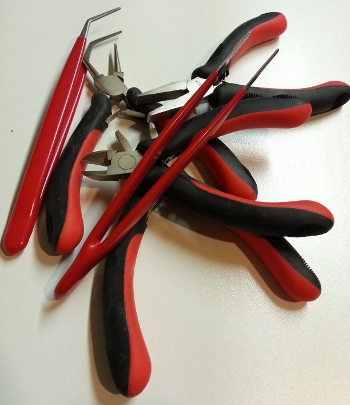
Clamps
A few of those in various shapes and sizes will help a lot when assembling/glueing/holding parts.
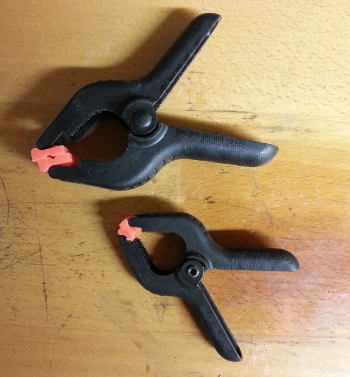
Hot glue gun
The equivalent of scotch tape for DIY projects.Because whenever you cannot find the right mechanical parts for properly assembling the pieces of your project, hot glue is there for you, and who cares if it looks messy.
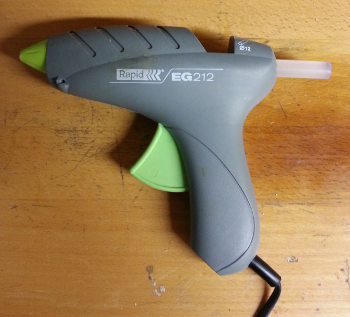
Caliper
Very useful when doing any kind of mechanical design/assembly. This is another tool where the cheapest models will not do, and investing in a decent digital caliper will save tons of frustration.
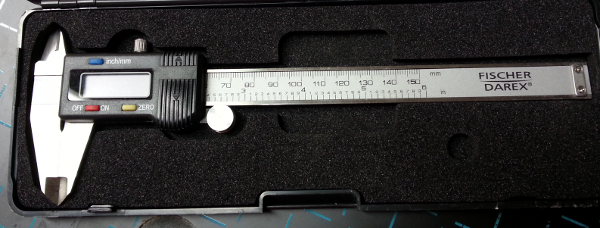
Bus Pirate
The #1 must-have for hacking projects. Supports a large variety of communication protocols to interface with whatever gadget
you are trying to hack. Available from Seeed Studio for about 30$
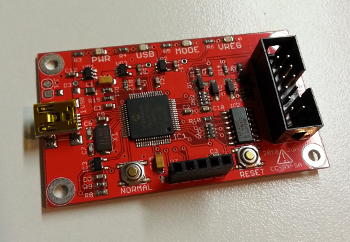
Nice to have
Multi-purpose rotary tool
It’s almost a must-have considering how convenient this kind of tool is for small cutting/drilling/polishing operations and when precision is required.
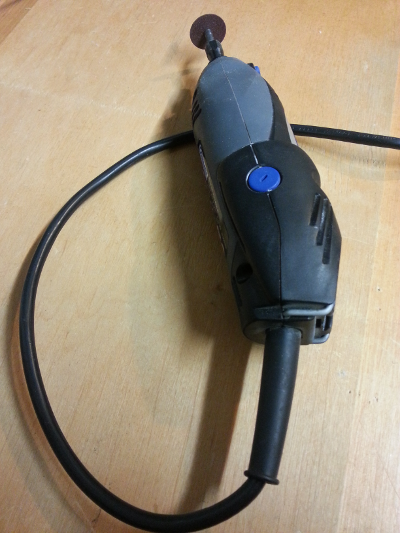
Oscilloscope
If you are going to do some analog circuits, sooner or later you will need an oscilloscope. Since they are crazy expensive,
instead of not having one at all I settled for a very low price 1-channel USB-powered pocket oscillope (DSO Nano, around 90$)
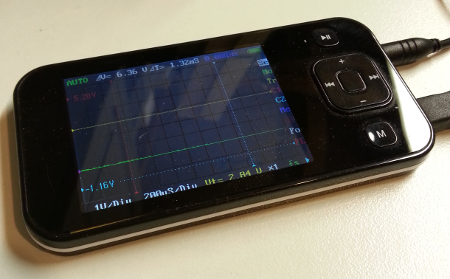
Soldering station
Not mandatory by any means, but since I wanted to try SMD (Surface Mount Devices) someday and get a decent soldering iron to replace my old one, this two-in-one solution was a nice option. Also, in this specific case I did not go for cheaper chinese models, because….safety.
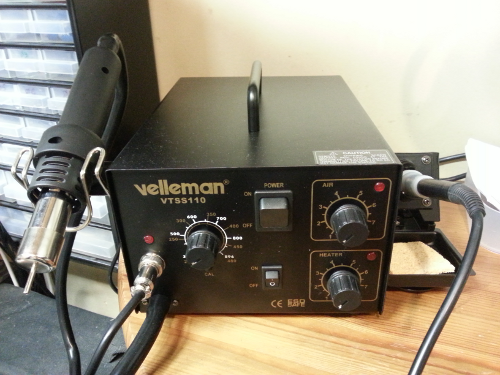
PCB holder
A nice gadget to hold a PCB and its components while soldering them. It makes things so much more convenient than taping components or whatever, and is quite affordable.
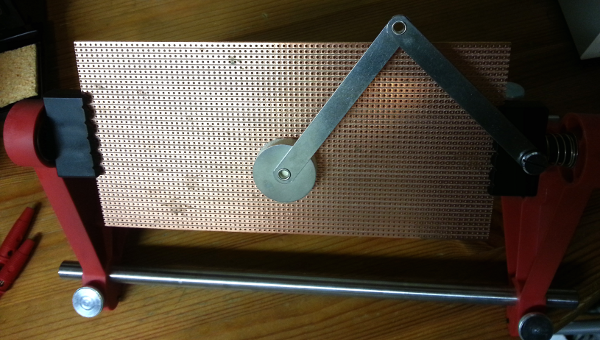
Wire stripper
If you ever had to strip both ends of tens of little wires when breadboarding a project, or hurt yourself trying to strip a wire with your teeth (…), you will know that this is an invaluable tool, which can be bought for under 10$.
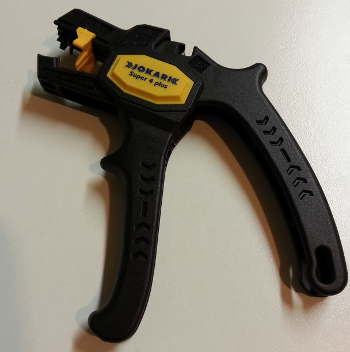
Crimping tool
If you end up having to make your own terminals for 2.54mm PCB connectors, pretty much the only way to make these tiny connectors on small gauge wire is to spend 30$ buying such a crimping tool. It will save you the frustration of thinking you can crimp the tiny buggers manually and get away with it, only to realize that you can’t (if you think you can, the resulting unreliable connector will break on you at the worst moment. Guaranteed.)
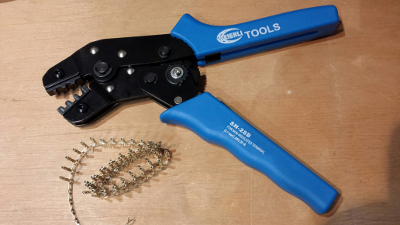
Magnifying glass/lamp
Not that useful for regular through-hole PCB soldering, but much more so for checking SMD soldering results.
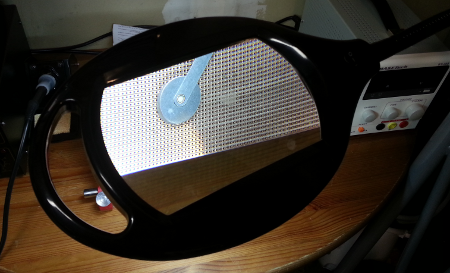
Heat gun
Quite useful for hot-tinning a raw PCB, and will double as a valuable way for stripping the paint off your shutters
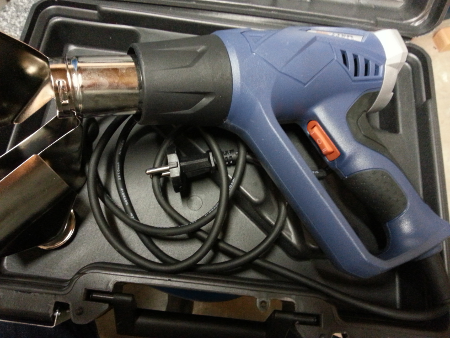
Drill press
Once you taste the convenience & precision of drilling with a drill press, there is no going back. Mine is a cheapo version bought for around 70 euros in a home depot.
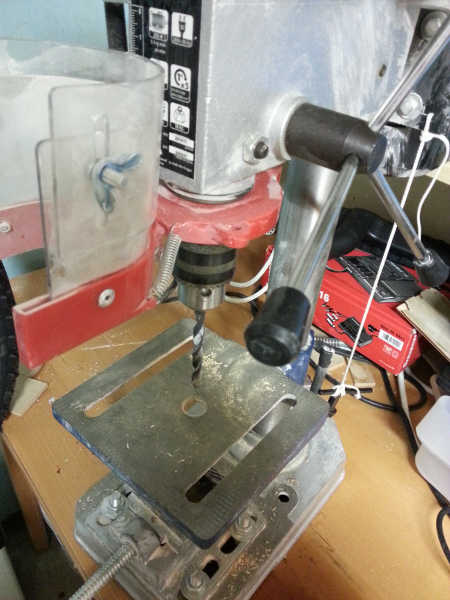
For precision work like drilling the tiny holes in a PCB, a smaller model does wonders with a hand held drill mounted onto it:
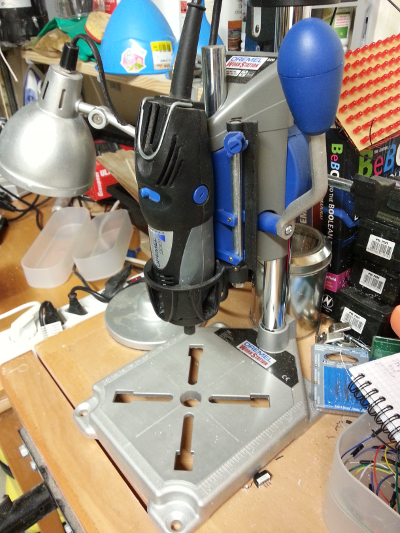
Open Logic Sniffer
Logic analyzers are invaluable tools, whenever there is a need to figure out exactly what is going on at the wire level in your digital circuits.
Real-life logic analyzers are way too expensive for the DIYers, but not to worry: open logic sniffer from Seeed Studio costs 50$
and will do the job in 99.9% of the cases, at least for the type of projects I am working on.
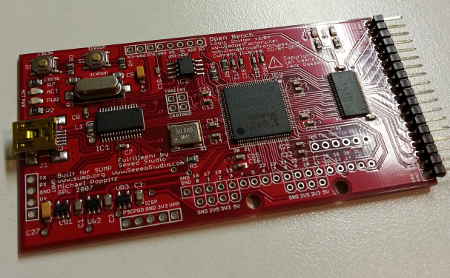
Ethernet/RJ45 crimp tool
If you are going to make your own Ethernet cables (e.g. of custom length), this tool will help crimping the RJ45 plug at each end of the cable in a RELIABLE way. This 10$ one from China works just fine.
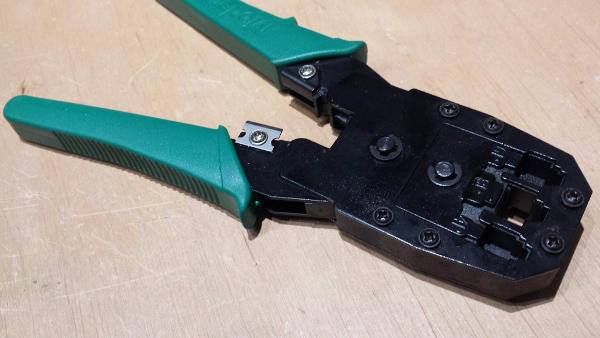
Ethernet cable tester
A quite handy tool to quickly test Ethernet cables, ESPECIALLY manually crimped ones. Also quite useful to check the integrity of an Ethernet cable going across the house, without having to bring a computer on each side. Got mine for 5$ from China, shipping included.
